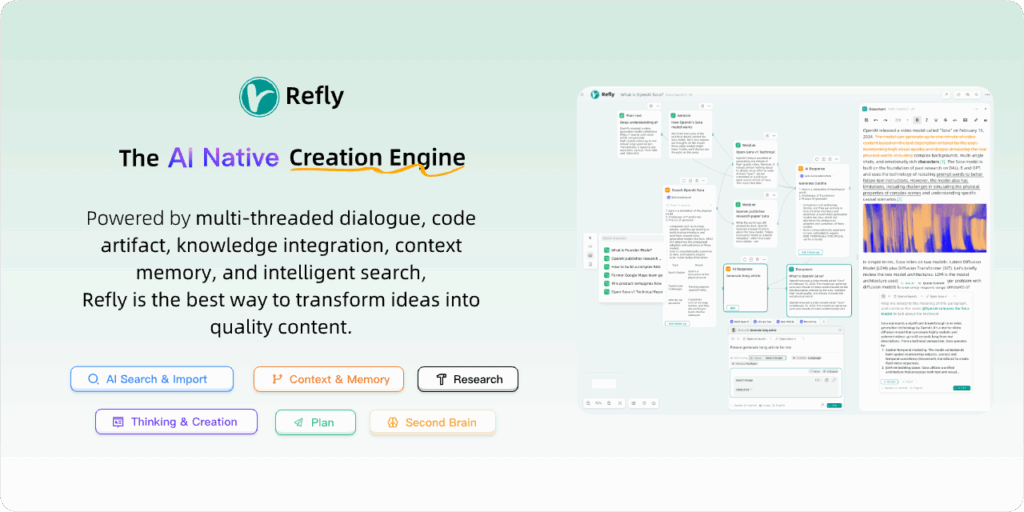Basic Information
Refly.AI is an open-source agentic workspace designed to blend human insight with AI execution for real-world tasks. It is intended for teams, developers, and organizations that want a collaborative platform to prototype product designs, generate presentations, run deep research workflows, create multimodal marketing content, and orchestrate operational pipelines. The repository provides a self-hostable community edition with Docker and Kubernetes deployment instructions and a cloud-hosted option for zero-configuration usage. It targets users who need transparent, controllable AI assistance and supports enterprise private deployments via contact. The project emphasizes human-in-the-loop workflows, multi-threaded conversation contexts, and extensibility so contributors can extend models, connectors, and knowledge sources. Documentation, contribution guidelines, and community channels are provided to help operators and developers deploy, customize, and maintain the workspace.








